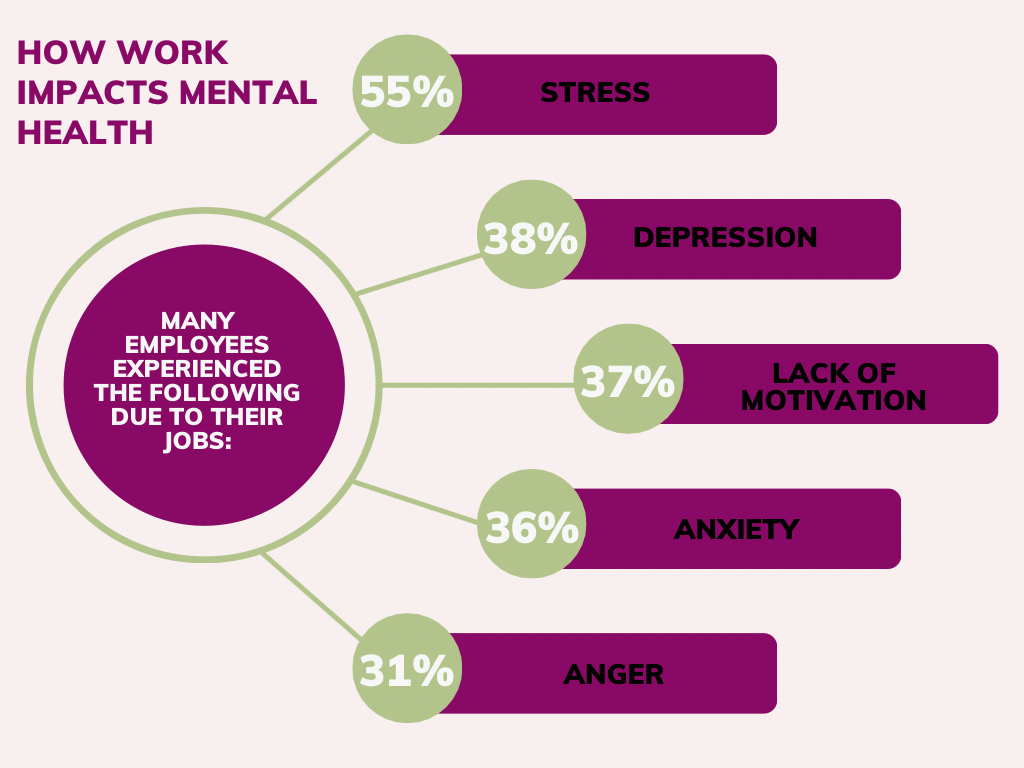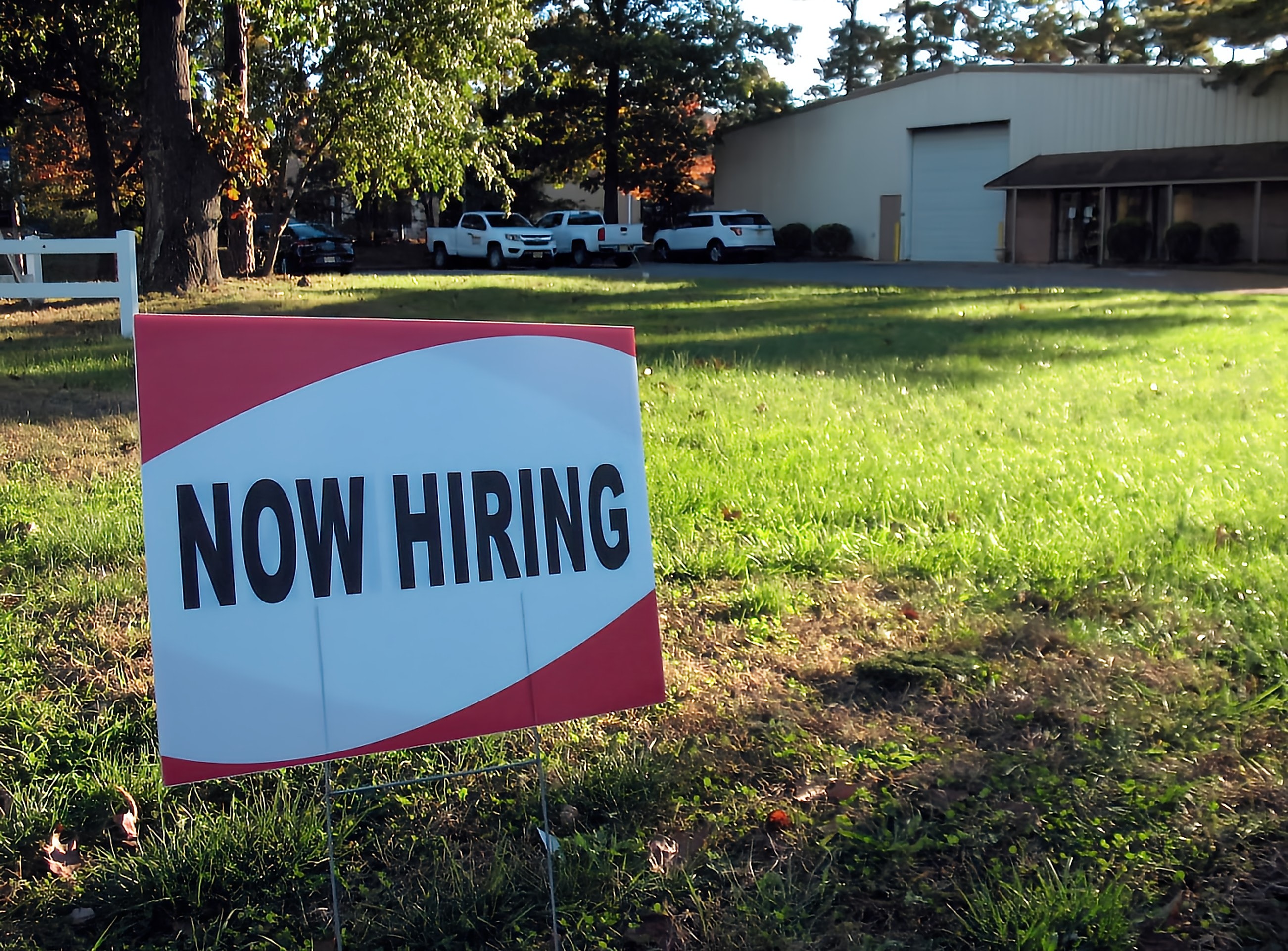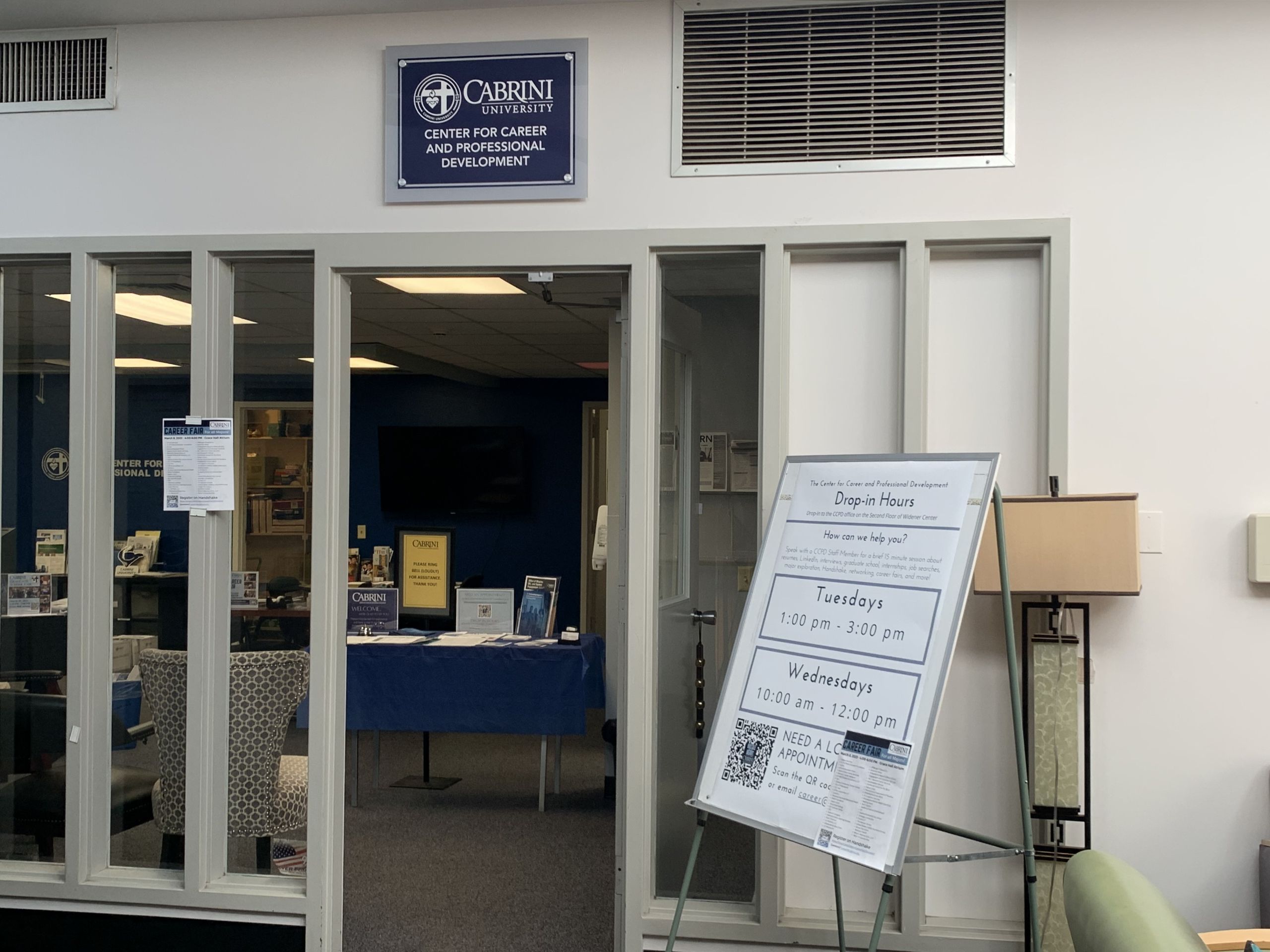Record numbers of Americans are quitting their jobs, largely in part due to mental health concerns.
According to a study conducted by career guidance service JobSage, out of 2,000 people polled, 28% reported leaving due to mental health concerns. The same study found that two out of five respondents said that work has the worst impact on their mental health, with one out of five respondents said that their employer doesn’t do enough to support their mental health.
“The Great Resignation”
The trend, also referred to as “The Great Resignation,” a term coined by Dr. Anthony Klotz, is largely accelerated by the COVID-19 pandemic. However, according to an article from the Harvard Business Review, the rate of people leaving their jobs has risen each year since 2009, before dipping down in 2020 then spiking back up again in 2021. In 2022, 50.5 million people quit their jobs, an increase of almost 3 million from 2021.

Andre Silva Cunha, junior computer and information sciences major, spoke about his experience leaving his job. “I started working right out of high school at a mechanic shop. It was over 40 hours a week, and it got to the point where my mental health and my life outside of work was being interrupted,” he said. “It drove me to that next step of thinking about what I wanted to do, and it eventually did lead me to leave that job.”
Cunha also emphasized the lack of structure and respect from management that led him to leave. “That drove me into a lot of stress because I had to deal with a lot of things on my own, and especially at a young age, I don’t think I was ready for that,” he said.
“I was taking up a lot of responsibilities at once. It was to a point where I would complain about certain things and expect action and accountability from the ownership. I felt like I wasn’t being heard or valued, and that’s what pushed me over the edge.”
Contributing factors
“We all want to feel like we’re valued and respected. If we’re in an environment where we’re being questioned or everything we bring to the table is immediately shot down, then that essentially makes us feel like we’re not being appreciated in a work setting,” said Ashley Grant, an adjunct professor in Cabrini’s psychology department. “That could really affect our ability to do our job and our tendency to want to speak up.”

Cunha worked at the mechanic shop for approximately a year and a half but stuck around for three months after he had began to considering leaving. “I was expecting some change to happen, because I was outspoken about what I thought needed to be changed, but I guess my opinion wasn’t valued,” he said.
A hostile workplace can wreak havoc on a person’s mental health and cause them to leave their job. “If people have negative interactions with coworkers, or they feel like they’re being criticized by their bosses, that’s a situation where they may not be as inclined to stay at a job,” Grant said. “It will essentially cause more depression and feeling like a failure, which can cause more anxiety as well.”
Work environments can also create burnout for employees and push them away. “If you don’t have enough time in the day to do all the tasks you have to do, and you’re taking work home with you, there is no separation between work and life,” Grant said. “And if that’s the case, that will create more long-term burnout.”
For people looking to leave their jobs, finding the next steps can be challenging. “Utilize your network in finding other opportunities. You also need to set yourself with a game plan,” said Erin Gabriele, director of Cabrini’s Center for Career and Professional Development. “We know our own health better than anyone. Work with your network, and never throw all your eggs in one basket. Apply to many positions.”







